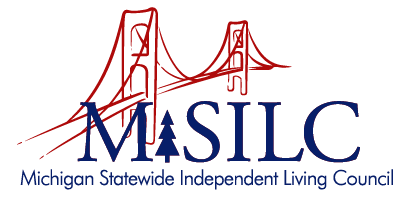To kick off this year, we’ve been discussing the benefits of mentorship, especially as they relate to ensuring people with disabilities can live self-directed, independent lives. But first, you might be wondering: what is mentorship, anyway? What do mentoring relationships look like? And, most importantly, what’s in it for me? We’re here to answer those questions and give you the resources you need to mentor or be mentored and reap the rewards.
Mentorship is when a person with more experience in a job or with a set of circumstances (the mentor) is matched with someone with less experience (the mentee) to provide guidance and support and maximize the positive outcomes of the mentoring relationship. Mentoring programs take many forms, but whether they’re formal or informal, the statistics are overwhelming: they work! In work and life in general, mentees feel more confident and connected than those who don’t participate in mentoring programs, and the mentors themselves feel a sense of pride and intrinsic rewards from sharing their experiences. Mentorship helps people focus on their goals, identify the process for achieving them, and develop the assets they need with a committed and experienced mentor.
Employment-related mentoring may be the most common type of mentoring relationship, and it’s especially useful in helping new employees with disabilities ensure their talents are fully utilized and their voices are heard, showing employers how to leverage their employees’ skills and contributions, and creating more inclusive and accessible workplaces for all. Employee mentorship programs can help mentees build specific skills useful in their new workplaces, and establish deeper connections within the organization that can lead to career advancement. One study demonstrated that mentees were up to five times more likely to be promoted than non-mentees. Employees in mentoring programs also report higher job satisfaction and are more likely to remain at their companies than employees who do not participate in mentoring programs. For employers and employees alike, mentorship makes people feel a sense of camaraderie and personal investment that benefits the entire organization.
Peer mentorship involves an experienced mentor helping a mentee navigate specific life circumstances or challenges. Peer mentoring can occur in a school setting, through an advocacy organization, or informally, and can assist people with career planning, transitioning to independent living, managing disability-related experiences, and more. For people of all ages, having the support and wisdom of a mentor can greatly improve their quality of life and provide perspectives and even tangible connections that help them get ahead personally or professionally. Disability-specific mentoring programs pair people with similar disabilities so the mentor can help the mentee with everything from independent living options and educational or employment opportunities to building a social network.
So how do I find a mentor/program or create a program in my workplace? If you are currently employed or job seeking, ask potential employers if they have a mentorship program. More than 71% of Fortune 500 companies currently have mentoring programs available. If you are employed or seeking employment and cannot find a mentorship program, ask to create one! Your local Center for Independent Living (CIL) can help employers create more inclusive workplaces with mentorships and other initiatives. CILs can also connect people to peer support and mentorship opportunities, disability-specific or otherwise. Other good resources for formal and informal mentorships include Chambers of Commerce for entrepreneurship, peer groups and professional organizations, non-profit organizations like the National Disability Mentoring Coalition, Boys and Girls Club, and United Way, or government-funded resources such as the National Mentoring Resource Center or mentoring.org. Many membership-based private mentoring organizations also exist online, but be sure to review the criteria and process of mentor selection to ensure a successful match.
Whether you’ve decided that 2023 is your year to start mentoring or you’re searching for a mentor to help guide you toward your goals, your CIL and partner organizations can help! Get in touch today–find your CIL at https://dnmichigan.org/cils/





